As we know, social media is and will always be a topic for debate with the many arising advantages and disadvantages. You can find any thing of social media. When you think you’ve seen it all, there are more to surprise you. And here is a shocker for you, the bystander effect also extends onto social media. Quite honestly, this surprises me too, but let’s dive into the bystander effect on social media.
Before we do that, last week, we opened on the bystander effect (if you haven’t read it yet, I’m really not sure what you are waiting for) and how it occurs more than it needs to. To refresh our minds, this effect is a phenomenon that refers to the tendency of people to remain passive and not help others in need when they are in the presence of others.

The bystander effect, also known as the Genovese effect, is named after the brutal rape and murder of Kitty Genovese, during which no one came to her aid. So, if you haven’t read last week’s blog post, you’re missing out on some serious knowledge. And in the blog, we also listed some factors that contribute to the bystander effect, one that includes evaluation apprehension – fear of public judgement.
Now, how does the bystander effect tie into social media?
I, once, received this video from my mother, showcasing a disturbing incident. Picture this: over several teenage Caucasian girls targeted a teenage black girl, subjecting her to their bullying. It was disheartening that many bystanders, including the person filming, did not help the black girl in need.
However, the sadness did not stop there. An adult Caucasian woman fueled the confrontation, while recording the video and shamelessly goaded the fight on even further. It’s a disheartening example of the modern bystander effect in the social media world.
“I always wondered why somebody didn’t do something about that. Then I realized, I AM SOMEBODY.”
Anonymous
It is worth noting that a significant number of the content we consume on social media is captured via video recordings that individuals have made. Unfortunately, instead of calling the authorities, many people’s first reaction to heinous crimes is to record them with their phones.
Some even take it a step farther by using their videos for content to garner viewership on their social media platforms. Without realizing, they are encouraging the act of whatever crime a person is committing.
On the other side of the screen as a viewer.
When you switch over to social media and start viewing content on your phone, you become a viewer. And while in the background, we often forget that we are viewing people’s realities. So, we are often quick to comment our opinions, whether we know the full story or not.
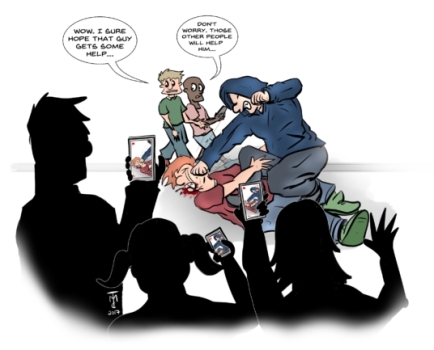
Social media platforms tend to create echo chambers where individuals are more likely to interact with people who share their beliefs and values. This can lead to the reinforcement of negative attitudes towards certain groups, which can further exacerbate the bystander effect. For instance, if a person sees a discriminatory post on social media, they may not report it or speak out against it, thinking that others will do it instead.
In the context of social media, the diffusion of responsibility is amplified due to the anonymity and distance provided by online platforms. Sadly, people feel even less responsible for taking action because they are not physically present in the situation.
Social Media as a double-edged sword.
Certainly, social media can have positive effects, such as helping solve crimes. However, it is concerning that instances of crime are quickly spread across the internet once they occur. This potentially leads to a lack of assistance for victims who have suffered for a prolonged period.
Social media is often used to avoid confronting unpleasant situations or issues. Nowadays, bystanders who don’t intervene may be less empathetic and less affected by violence and crime than in the past.
“Whenever one person stands up and says, “Wait a minute. This is wrong,” It helps other people to do the same.”
Gloria Steinem
People can hide behind their screens and remain ignorant of the problems affecting others. They can choose not to involve themselves and turn a blind eye to the suffering of others. This contributes to the bystander effect, where people remain passive and do not help others in need.
While social media can have positive effects, it is important to be aware of the negative impact it can have on our willingness to intervene or provide assistance. Instead of amplifying the bystander effect with social media, we need to teach people how to use these tools correctly and recognize risky situations where recording might not be safe.
Lead by example.
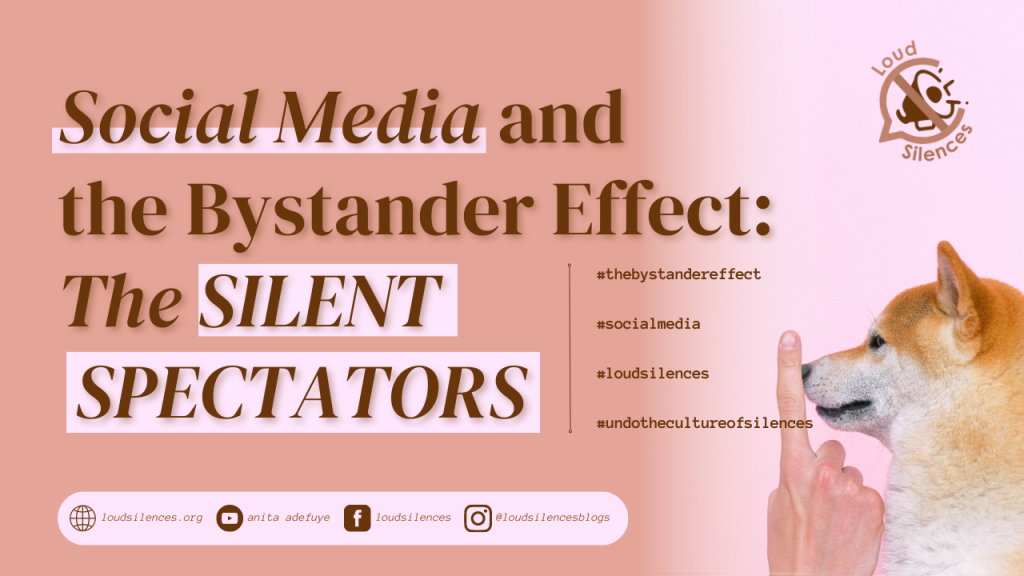
Her book, Reve-Healed – A true story of pain, healing, and hope, is available for purchase. Get yourself a copy today!
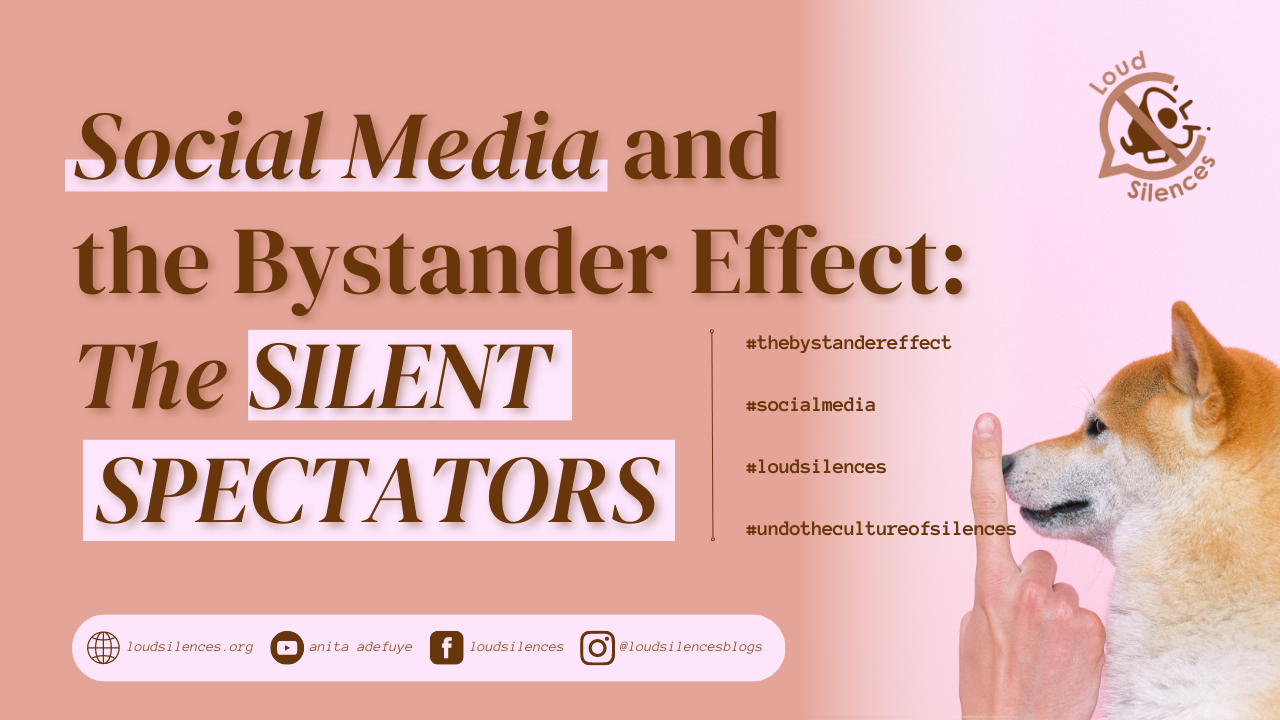
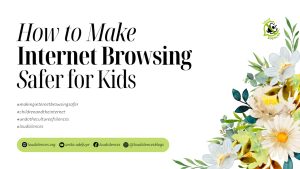
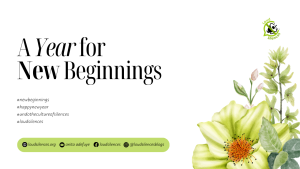
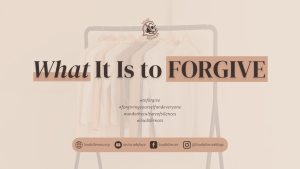
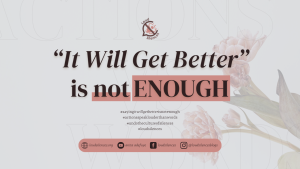

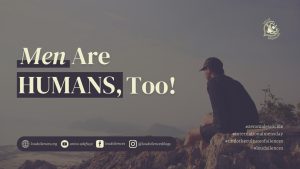
Leave a Reply